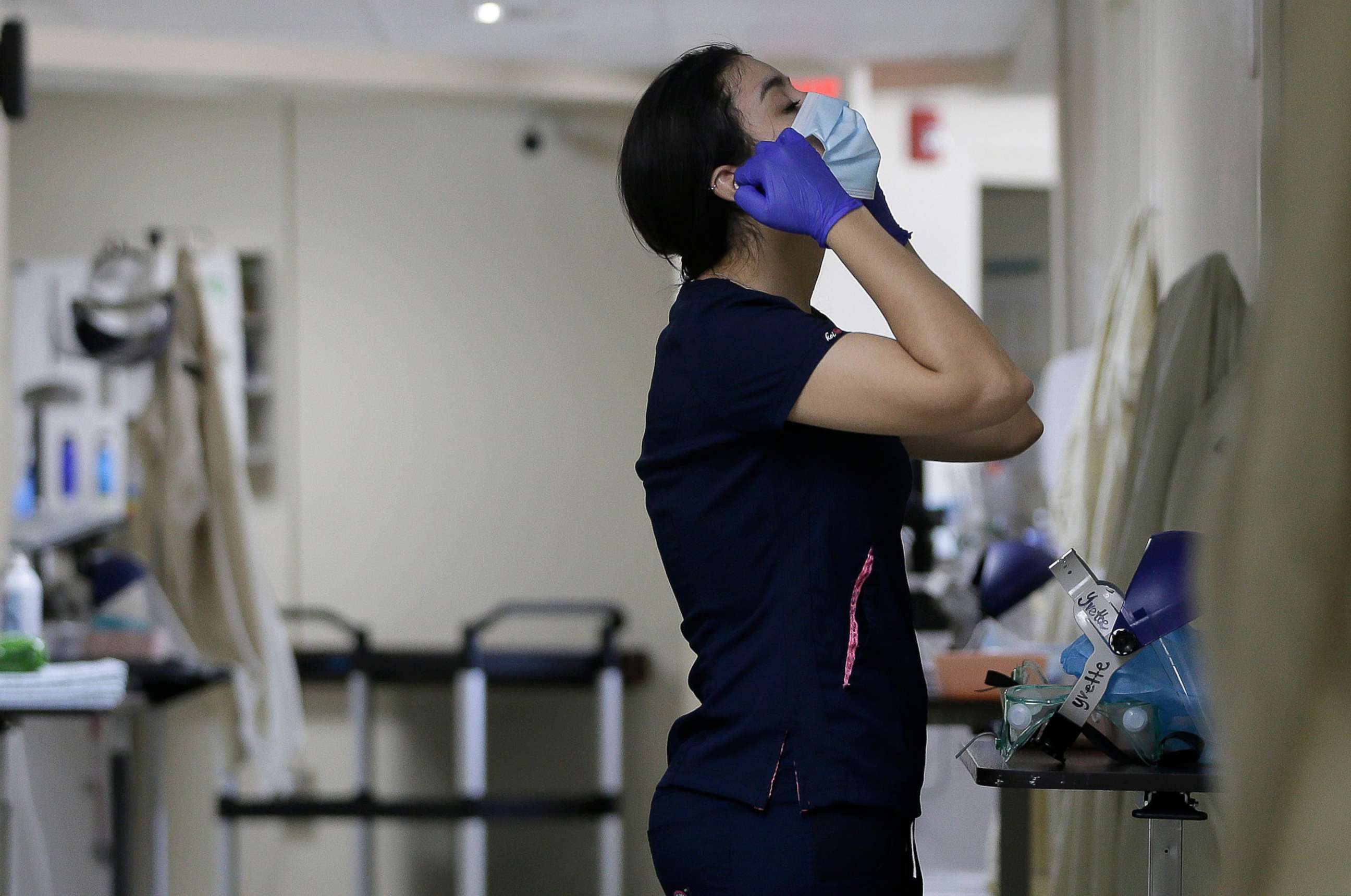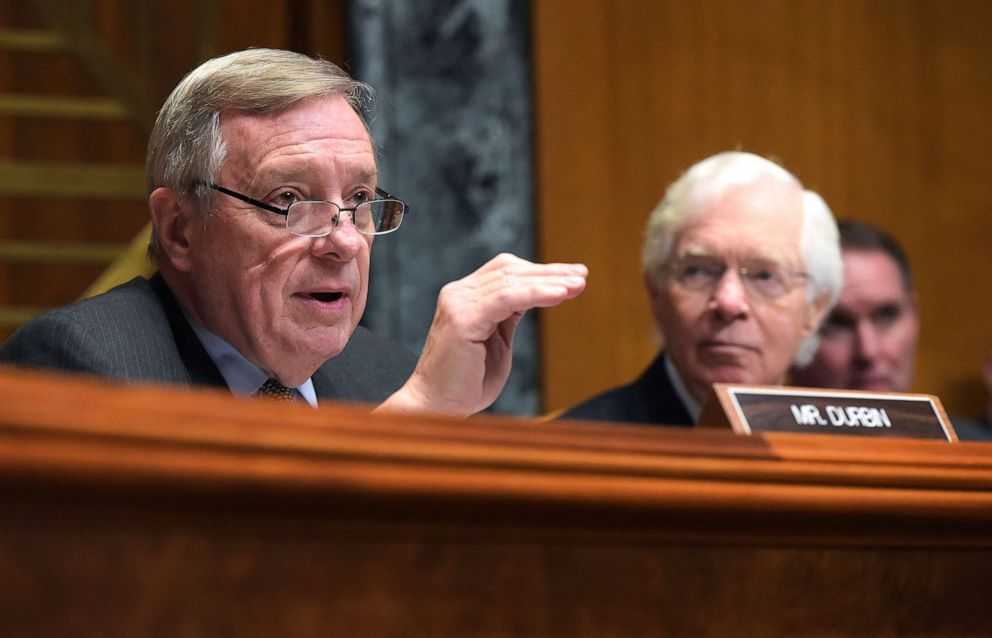Hospitals say staffing shortages creating 'dire need' for foreign nurses
Demand is high, but immigration limitations are slowing the process.
As hospitals brace for the holidays amid the ongoing coronavirus pandemic, staffing shortages in U.S. hospitals have created a higher-than-normal demand for international nurses -- but rising costs and immigration delays are thwarting their efforts.
Avant, an agency that hires international health care workers, told ABC News that due to pandemic, the company has seen an uptick in job orders from foreign nurses from across the U.S.
"We currently have requests from 28 states," said Avant Healthcare CEO Shari Costantini. "Hospitals are in dire need and the demand for international nurses is great right now."
Ron Hope, the CEO of Worldwide Healthstaff Solutions, a company that connects health care facilities in the U.S. with nurses from around the world, told ABC News that since the pandemic started, more hospitals and long-term care facilities have reached out to inquire about international nurses.
"The pandemic has certainly highlighted and exposed the shortage, and in some ways it's even intensified it," Hope said. "The urgency of this has gotten greater because of the influx of patients. And the reality is that there's not enough doctors and nurses in the U.S."
Officials from nurse associations in North Carolina, Delaware and Texas told ABC News that due to the increased demand, hospitals are turning to international agencies to hire nurses.

"As of right now we are short about 30,000 nurses," Serena Bumpus, the director of practice for the Texas Nurses Association. "So some hospitals and organizations have gone to recruiting nurses internationally, especially from the Philippines."
Since the1960s, when the U.S. suffered a shortage of nurses, Filipino nurses were trained to work in the American health care system and recruited. According to the National Nurses United, Filipino nurses account for 4% of the workforce.
Complaints about shortages of nurses are not new, Bumpus said, but the issue has been exacerbated by the pandemic. Bumpus expects the shortfall in Texas to reach as high as 60,000 by 2032.
"Our rural areas are the hardest hit," said Bumpus. "Hospitals don't have the staff they need."
In Delaware, hospitals are bringing in supplemental nursing staff through regional, national and international agencies to mitigate the gap. But with high demand and limited supply, prices for contracting nurses are "skyrocketing," said Christopher Otto, executive director of the Delaware Nurses Association.
The use of international health care workers in the U.S. has been practiced for decades. Foreign-born nurses make up about 15% of the nation's registered nurses, according to a June 2016 report by the Immigrant Learning Center and the Institute for Immigration Research at George Mason University.
A spokesperson for the South Carolina Hospital Association told ABC News that several hospitals in the state have been requesting international nurses since even before the pandemic began.
But because of time lags in the immigration process, thousands of nurses who could be helping U.S. hospitals in the ongoing fight against COVID-19 are still waiting for green cards.
"Consider this: One-sixth of our health care workforce is foreign-born," said Illinois Sen. Dick Durbin in a statement provided to ABC News. "Immigrant nurses and doctors play a vital role in our healthcare system, and their contributions are now more crucial than ever."

Durbin, along with Sens. David Perdue, Todd Young, and Chris Coons, introduced a bill in May that would recapture and reallocate 25,000 unused immigrant visas for nurses and 15,000 for doctors, and instruct the State Department and Department of Homeland Security to expedite processing them.
The bill was introduced and referred to the Senate Judiciary Committee, but according to Durbin's staff, Senate Judiciary Committee Chairman Lindsey Graham has not held a hearing on it.
"There has never been a more urgent need for the care that foreign-born physicians and foreign-trained nurses provide than during the current COVID-19 pandemic," The American Hospital Association and the American Organization for Nursing Leadership said in a statement. "A targeted allocation of recaptured visas to these health care professionals will have a tremendous impact on the ability to care for patients with COVID-19 and it will have a lasting impact on the overall health of our communities."
Health care officials say the lengthy immigration process is frustrating because qualified nurses are standing by to help U.S. hospitals.
"Foreign nurses are leaving their home country to be on the front lines of the pandemic," said Costantini, the CEO of Avant. "The main frustration is that we cannot get nurses into the U.S. fast enough to meet states' needs."
"We are filing the requests as fast as we can, but the immigration process' final steps are slow," Costantini said.
ABC News' Olivia Rubin contributed to this report.




